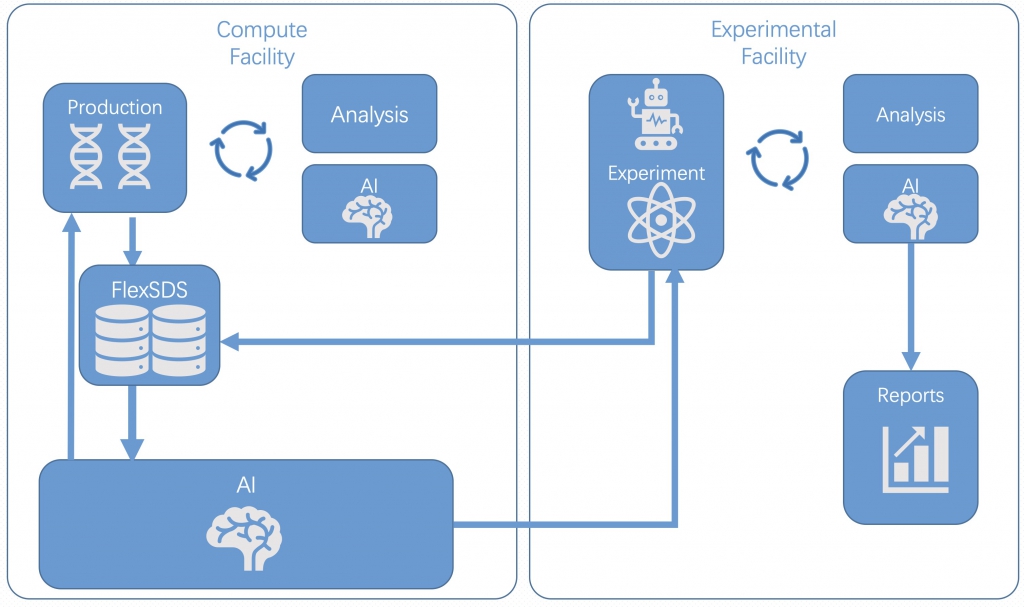Accelerating a data analytics project is critical for storage vendors that sell storage systems designed for big data analytics, artificial intelligence (AI), and machine learning (ML). Speed is hugely important when it comes to AI. Here as well, flash provides a massive speed advantage all the way through what we call the AI data pipeline, however, when using an AFA (all flash array), software could be the bottleneck because of its latency.
FlexSDS created a subversive architecture that drives a kernel-bypass, zero-copy and lock-free model scale-out storage, to avoid latency by passing the system, that brings 10X+ speedup to the traditional storage software, that is not only closing to hardware performance, but also performance could be scaled up by adding more hardware resources.

It’s a software-only solution that runs on industry-standard hardware (any x86 based machines). It supports unlimited capacity per node and up to 2 PB of each storage pools. It could be external storage or HCI storage for private and hybrid cloud, by providing thin provisioning volume, log structured volume or RAW volumes, and export them over SAN protocol.
For working in private and hybrid cloud FlexSDS brings the ability to run any application at any scale, fast time-to-value, and non-disruptive scale-up or scale-out.
FlexSDS other Key features for AI and big-data include:
support hardware NVMe SSD (Kernel-bypass), RDMA (Infiniband, RoCE, and iWarp), fully support all-flash-array.
Fast deployment and scaling of storage resources, and dynamic workload scaling and balancing.
Designed for next generation hardware, kernel-bypass, lock-free model, zero-memory-copy, high CPU cache optimize to provide extreme low latency.
Parallel and high concurrent I/O technology and high utilization of storage and network resources.
multiple node and data copies, high availability and auto-recovery.
efficient asynchronous replication
Low total cost of ownership (TCO)
single-pane management.
supports up to 1024 server nodes and can offer block service to Windows Hyper-V, VMware vSphere, Citrix XenServer or KVM-qemu hypervisor.
Protocol supports: iSCSI, iSER, and NVMe over Fabrics
unlimited space-optimized snapshots and clones, periodic or continuous asynchronous long-distance replication.
